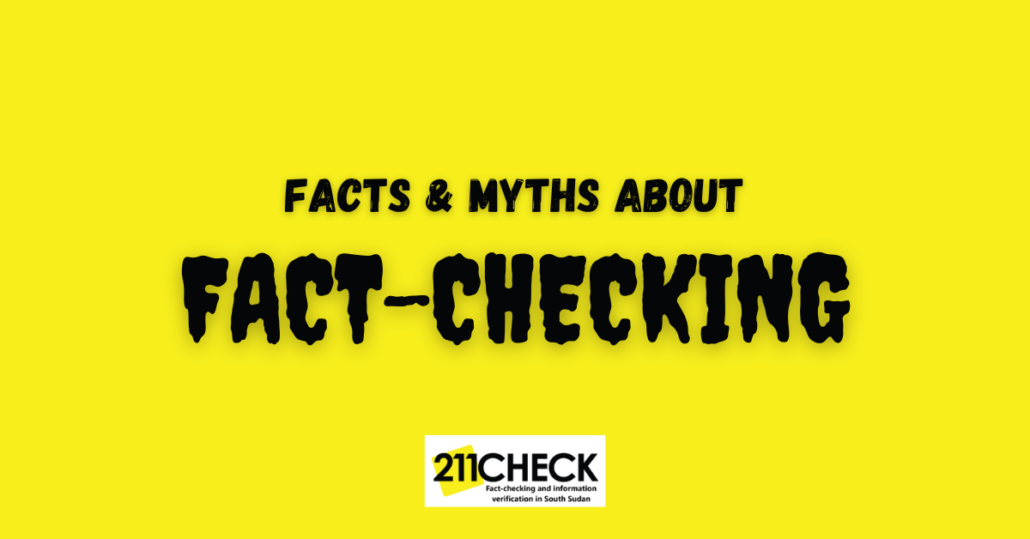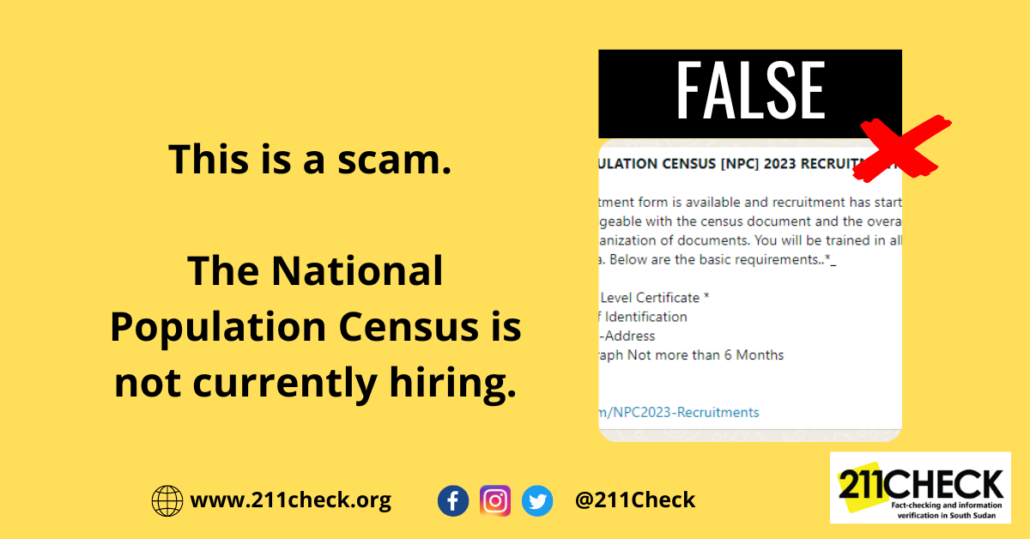Common misconceptions about fact-checking and information verification
Fact-checking is an important tool for verifying the accuracy of information in today’s world, and it is vital to be aware of the myths and truths about it.
Writer: Emmanuel Bida Thomas
In today’s world, verifying the accuracy of information is more critical than ever. With the rise of social media and the 24-hour news cycle, it is easy to be bombarded with information, much of which is false or misleading. Fact-checking is the process of verifying the accuracy of the information, and it is an essential tool for anyone who wants to be informed about the world around them.
There are many common myths about fact-checking. One myth is that fact-checking is biased. Fact-checkers are trained to be objective and impartial and use various methods to verify the accuracy of information. However, it is essential to remember that no one is perfect, and there is always the possibility of human error.
Another myth is that fact-checking is only about politics. Fact-checking can be used to verify information about any topic, not just politics. Fact-checkers often fact-check claims made by businesses, celebrities, and other non-political figures.
A third myth is that fact-checking is censorship. Fact-checking is not censorship. It is the process of verifying the accuracy of information. Censorship is the suppression of information that is considered to be objectionable or harmful. Fact-checking is not about suppressing information but ensuring that the information being shared is accurate.
A fourth myth is that fact-checkers are always right. Fact-checkers are human, and they make mistakes. It is important to remember that fact-checking is not a perfect science, and there is always the possibility that a fact-checker could cause an error. If you see a fact-check that you disagree with, you should do your research to verify the information.
A fifth myth is that fact-checking is not necessary. Some people believe fact-checking is unnecessary because they can simply trust their judgment. However, it is essential to remember that we are all susceptible to confirmation bias, which is the tendency to seek information confirming our beliefs. Fact-checking can help us to avoid confirmation bias and to make more informed decisions.
It is essential to be aware of these myths to make informed decisions about the information you consume. If you see a claim you are unsure about, you should do your research to verify the information. You can also use fact-checking websites to help you verify the accuracy of information.
Here are some tips for fact-checking information:
- Look for credible sources. When trying to verify information, it is crucial to look for credible and reputable sources. You can check the source’s website to see if they have a clear mission statement and if they list their sources. You can also look for fact-checks of the source by other reputable organisations.
- Be sceptical of sensational headlines. Sensational headlines are often designed to grab your attention but may be inaccurate. Reading the entire article before deciding whether to believe the information is essential.
- Check the facts. Once you have found a trustworthy source, you can check the facts. Look for evidence to support the claims that are being made. If you can’t find any evidence, or if the evidence is contradictory, then you may want to question the accuracy of the information.
- Don’t share information you’re not sure about. Before you share information on social media or with others, make sure you are sure that it is accurate. You can avoid spreading misinformation by taking the time to verify the information before you share it.
Fact-checking is an integral part of being an informed citizen. Awareness of the myths about fact-checking and using the tips above can ensure that you get accurate information as a content creator or news consumer.



